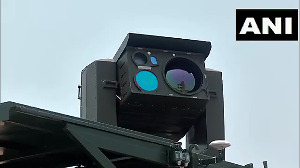This is an onerous burden for the RBI, for there is a severe conflict of interest between setting the short interest rate (i.e. the task of monetary policy) and selling bonds for the government. If the RBI tries to do a good job of discharging the responsibility of selling bonds, this involves selling bonds at high prices, i.e. keeping interest rates low. This leads to an inflationary bias in monetary policy.
An additional conflict of interest is caused by the RBI being the regulator of banks also. If the RBI tries to do a good job of discharging its responsibility of selling bonds, it has a bias in favour of forcing banks to buy government bonds. This generates a bias in favour of flawed banking regulation and supervision, so as to induce banks to buy government bonds and particularly long-dated government bonds. This has hurt the safety and soundness of banks in India.
In addition to these core problems of conflicts of interest, Indian debt management has many other weaknesses. There is no one place in the country where there is a full database of all the liabilities of GoI. This information is, hence, not used for risk management and optimisation of the financial burden of GoI. There is a big gap between the way mature market economies apply sophisticated financial economics for the purpose of devising optimal strategies for debt management, and the state of play in India.
As far as the mechanics of implementation are concerned, the Budget speech says: "[I]n the first phase, a Middle Office will be set up." A mid-office would constitute a single comprehensive database about all liabilities and guarantees of GoI, and a risk management overlay, which improves the risk profile of the overall portfolio. It is the logical starting point for the construction of the DMO. If the MoF is able to get key staffpersons with experience in state-of-the-art debt management in public sector settings, it is possible to set up the mid office in nine months, and have the DMO fully running in 18 months.
In 1997, the RBI and MoF signed the "ways and means agreement", which was the first milestone in modernising Indian monetary policy. The separation of the government's investment banking function from monetary policy, ten years later, marks the second important milestone in Indian monetary reform.
Turning to announcements on capital markets (para 94), the Budget speech has given much relief to hapless market participants by promising that the PAN will be the sole identification number. The challenge now, of course, is that of putting MAPIN-quality biometrics into the PAN card, so as to prevent one individual from controlling multiple PAN cards.
The second area where useful work is proposed is to "converge" the regulations that allow Indian mutual funds to invest outside the country and the regulations that allow Indian individuals to invest outside the country. On the one hand, this could help, by removing controls upon the aggregate investment by all mutual funds, and going purely by the per-investor limit of roughly Rs 20 lakh of outbound investment per investor per year. However, such convergence fails to achieve the most important benefit of international diversification.
Every single mutual fund scheme needs to be unabashedly investing all over the world, so as to deliver uniquely low-risk products to Indian customers, with attractive risk-return characteristics of a kind that are undreamt of in India today. The really important issue is not convergence of two kinds of control but about shifting the Indian mutual fund industry from thinking in terms of domestic portfolios to thinking in terms of global portfolios.
There is an enigmatic sentence in the Budget speech about allowing "short selling settled by delivery, and securities lending and borrowing to facilitate delivery, by institutions". These are positive features of a modern securities industry and any movement will only help. However, the full impact will only be known when details become available. The highest benefits would become available if short selling and securities borrowing become available for institutional investors for shares, government bonds and corporate bonds.
A key strength of the Budget is that in 2007-08 bond issuance of only Rs 150,948 crore is proposed. This involves near-zero growth in nominal terms when compared with 2005-06. If this target is met, it would imply that the central government has left 3.3 per cent of expenditure plans which are not covered by revenue. When bond issuance is flat in nominal terms, the growth of GDP and the savings rate gives increased space for private investment and thus an opportunity for accelerating Indian GDP growth.
The most intriguing piece of the Budget speech is in para 101, where there is hope of building a consensus to promote a world-class financial centre in Mumbai, and realise the objective of making financial services the next growth engine for India. Just as with IT, India has an opportunity to export financial services. The real importance of this runs far beyond the immediate export revenue. The most important benefits of an export-quality financial system lie in the opportunity to get higher GDP growth out of the same investment rate.
These are all positive directions to work in. The most depressing feature of the Budget speech was right at the outset. The speech began by punching the viewer in the nose in para 8A with a ban on futures trading on wheat and rice. It was a jarring reminder that India may be an IT superpower with $1 trillion GDP, but there are still many people at the top who are still thinking in the 1970s mentality of blaming futures traders, hoarders, profiteers and speculators for an economy-wide mismatch between supply and demand.








 © 2025
© 2025